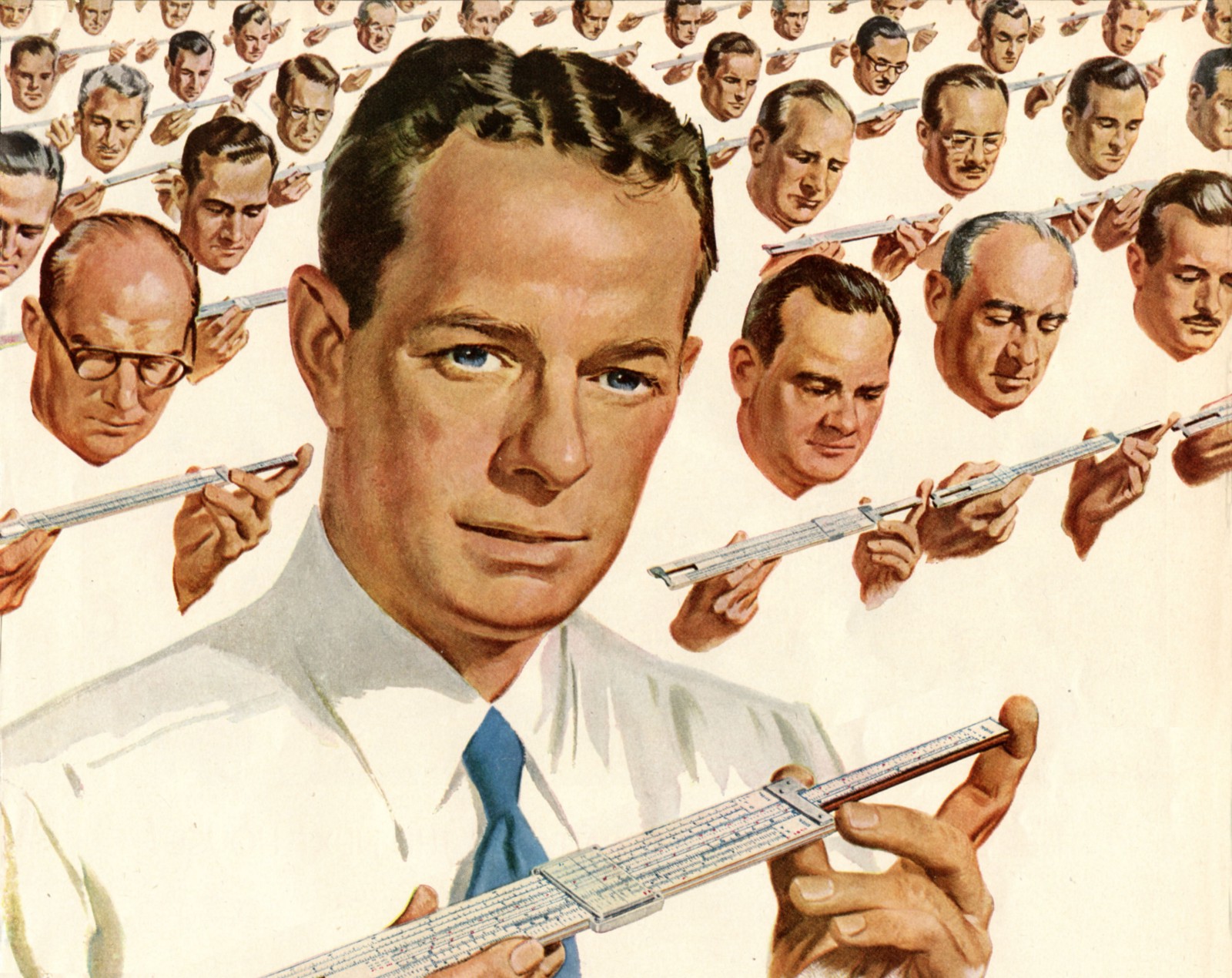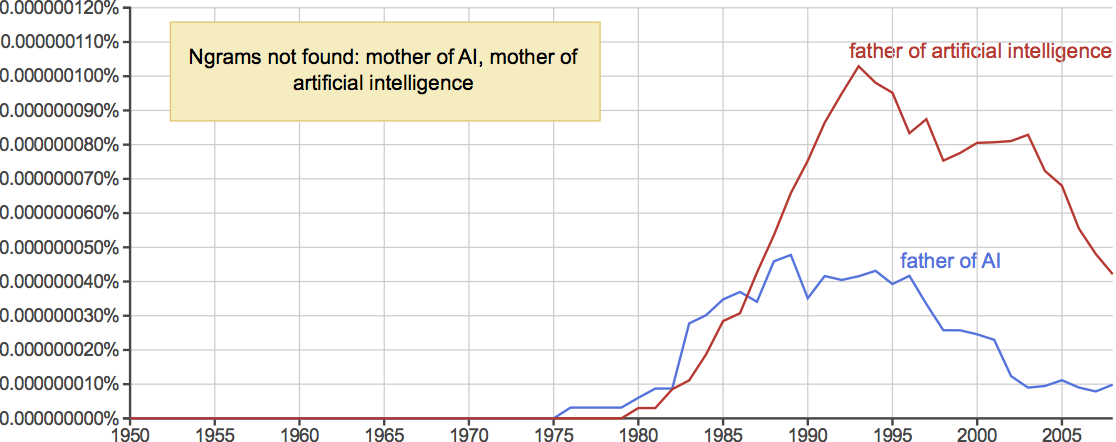Fighting the patriarchy in artificial intelligence

Nowhere is the gender bias that is so damaging to AI more apparent than in the phrase “the father of AI”. The demand for a father figure is striking, and to us, suggests two things.
First, there was, and continues to be, a fundamental maleness in the field of artificial intelligence. The 1956 Dartmouth workshop that shaped artificial intelligence had exclusively male attendees (Dartmouth was a male-only college at the time, and began accepting female students only in 1972).
Second, these father figures are proxies for a debate about approaches to AI. AI has a multitude of fathers, including: Alan Turing, John McCarthy, Marvin Minsky, Seymour Papert, Herb Simon, Joseph Weizenbaum, and more recently, Jürgen Schmidhuber. In Canada, Geoffrey Hinton has even acquired the status of “godfather”, with both patriarchal and sinister connotations.
Why doesn’t AI have any mothers? Mary Kenneth Keller, Barbara Liskov, Margaret Masterman, Karen Spärck-Jones, Maggie Boden, and Wendy Lehnert, among many others, had formative influences on the field. Yet, mothers are hidden from artificial intelligence, as this Google ngram search shows.

The father of AI is the authority that decided the approach to AI. McCarthy is associated with logic in AI, Simon and Minsky with a symbolic approach, and Schmidhuber and Hinton with a connectionist approach. The “father of AI” isn’t selected at random, for recency, or even for credit, but to fit their preferred ethos, code, or algorithm. Father must not be challenged, because father knows best.
It goes without saying that all fathers and no mothers perpetuates the gender bias at the core of AI. But the need for authority figures is almost as counterproductive. Artificial intelligence doesn’t need a father to guide it. We have grown up, and need to find our own way in life.
Dr Chris McKillop has a degree in artificial intelligence and a PhD in educational technology. She is an experienced researcher skilled in analyzing language for insights into people’s experiences.
Dr Stuart Watt has a PhD in the psychology of social intelligence and has developed technologies that use psychological insights into organizational processes to improve email practice.
They are founders of Turalt, a proudly female-led Toronto-based AI company using feedback and analytic tools based on AI and psycholinguistics to save human communication from the robot invasion with our technology of empathy.